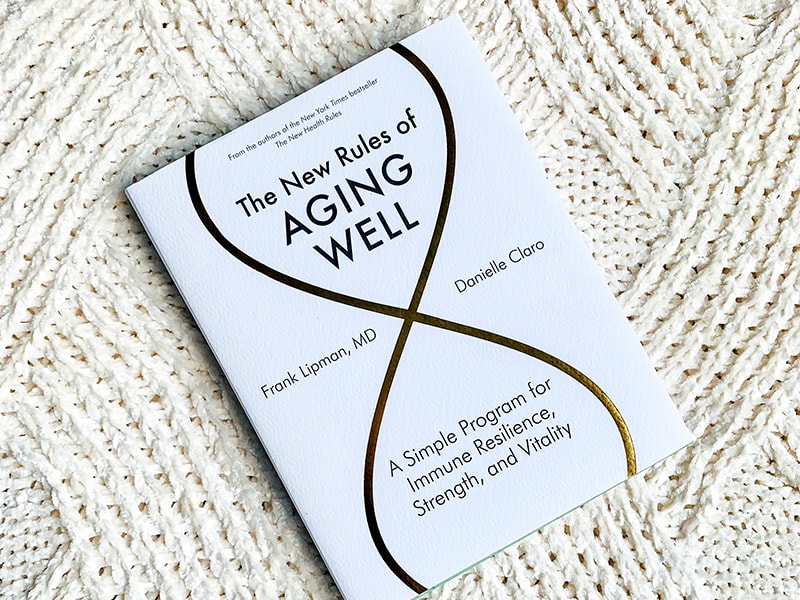Being well-rested and calm helps us do everything better – think, work, cope with stress, be a good partner, be a good parent—and it aids everything from immunity to hormones to brain power. According to Frank Lipman MD, co-author of the new release ‘The New Rules of Aging Well’, our sleep and wake cycles are also critical to wellness as we age. Suffering sleep issues? Try these bedtime rituals to help you function at your optimum.

A Bedtime Ritual
It’s not just about quantity; it’s also about quality: Your body and brain need a full complement of REM and non-REM sleep; deep sleep is part of the non-REM cycle. Going to bed at around the same time most nights and waking up around the same time most mornings is something you can do – starting today – to lock in restorative sleep patterns. It’s okay to sleep a bit later on weekends, but the concept of “catching up” on sleep is not a real thing. Your body needs regular daily recovery. If you’re getting five hours a night during the week and sleeping till 11 a.m. on Sunday, that’s going to be a problem.
A bedtime ritual can help. Like children, we do well with routines—they cue the body and mind to shift gears. It’s helpful to have an official plan for tuning out the day, shaking away tense thoughts, and relaxing the body.
Rather than watching TV and eventually dragging your exhausted bones off to bed, make space for the transition. Start getting ready for bed an hour earlier than usual, and use the time to set yourself up for high-quality, truly restorative rest. Your bedtime ritual should take a little while—it’s not something to rush through. This is time devoted to easing out of one state into another. Put together a routine that feels right. Pick from the ideas here or devise your own plan.
- Dim the lights an hour or two before you turn in.
- Relax your muscles with an Epsom salt soak. Add a couple of drops of soothing lavender oil.
- Relax your brain by dumping out whatever is in there: Make a to-do list or write in a journal. Pour out resentments or anger, and follow that exercise with a gratitude list.
- Think about what kind of content you consume at night. Some people can read a tense thriller and conk out, and others need to neutralize. A crossword puzzle, a YA novel (yes, adults can read these too), gentle poetry, spiritual essays. Find what works for you.· If you can’t turn off your brain, listen to relaxing music or use a white-noise machine.
It might seem like meditation is a fit here, but many people find meditating energizing. So we don’t usually recommend meditating before bed. Breathwork can be nice, though, just concentrating on long, easy breaths: Inhale for a slow count of four, and let the breath fall out in a slow exhale for a count of six. Do this for five to 10 minutes, then relax and breathe normally. You’ll likely find that your breath has “stretched” and become fuller, longer, and easier.
In a nutshell: a bedtime ritual is an easy, pleasant addition to your nighttime routine that could make a big difference.

Excerpted from The New Rules of Aging Well by Frank Lipman MD and Danielle Claro (Artisan Books). Copyright © 2020.








